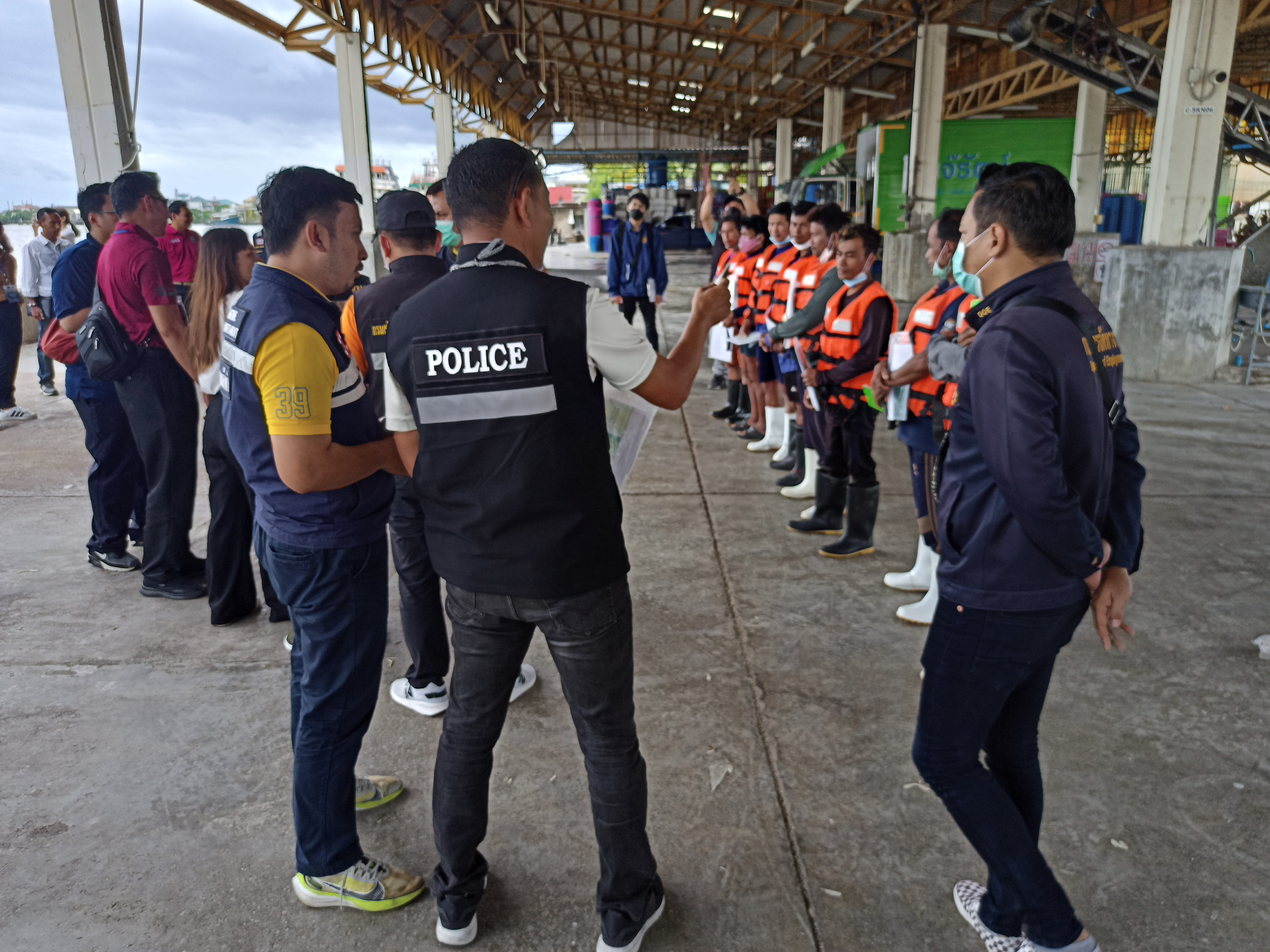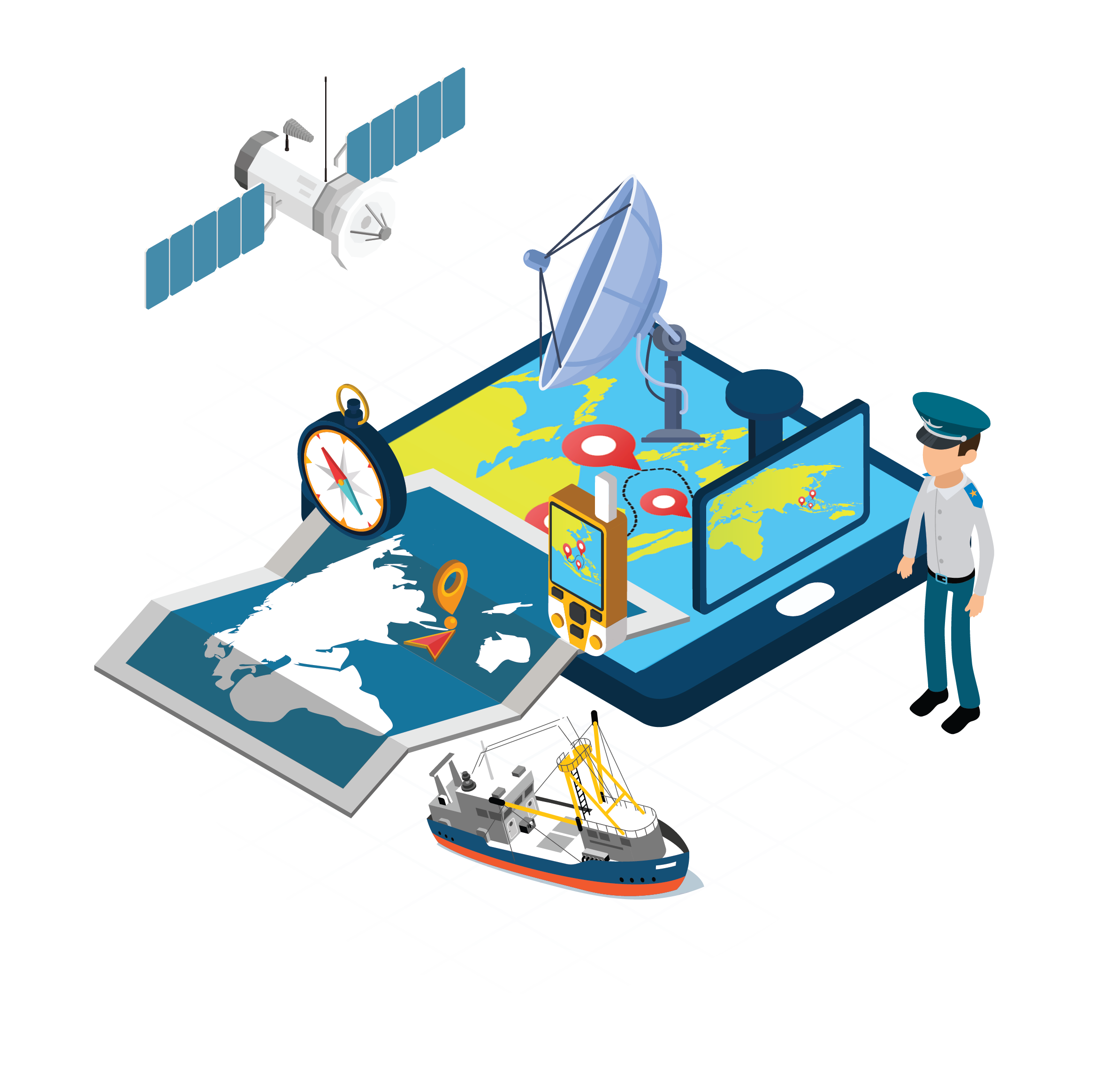Introduction
 Illegal, Unreported, and Unregulated (IUU) fishing poses a significant threat to all capture fisheries, whether within national boundaries or on the high seas. This illegal activity undermines efforts to conserve and manage fish stocks, potentially leading to fishery collapses or severely hindering recovery efforts for depleted stocks. Such impacts can lead to the loss of short- and long-term social and economic benefits and negatively affect food security. Southeast Asian countries continuously face growing pressure on their fisheries resources due to illegal fishing. In many cases, IUU fishing is linked to inadequate MCS (Monitoring, Control, and Surveillance) management.
Illegal, Unreported, and Unregulated (IUU) fishing poses a significant threat to all capture fisheries, whether within national boundaries or on the high seas. This illegal activity undermines efforts to conserve and manage fish stocks, potentially leading to fishery collapses or severely hindering recovery efforts for depleted stocks. Such impacts can lead to the loss of short- and long-term social and economic benefits and negatively affect food security. Southeast Asian countries continuously face growing pressure on their fisheries resources due to illegal fishing. In many cases, IUU fishing is linked to inadequate MCS (Monitoring, Control, and Surveillance) management.
Therefore, these countries should prioritize the development of preventive measures to achieve sustainable fisheries rather than focusing solely on conflict mitigation. Preventive measures could include regulating fishing vessel numbers, addressing overcapacity, and implementing effective rights-based fisheries management systems. The emphasis on illegal fishing within the IUU framework undermines both national and regional conservation efforts, hindering progress towards sustainable and responsible fisheries. Additionally, IUU fishing puts responsible fishers at a significant disadvantage, highlighting the urgent need for transparent and swift action against it. If IUU fishing remains unchecked, efforts to restore vulnerable stocks under strict management controls or moratoria will be unsuccessful.
The region's coastal and marine fisheries face numerous challenges, including depleted fish stocks, overfishing, conflicts among resource users, and legal violations by fishers. Some countries have made notable efforts to improve fisheries management and MCS systems, with varying levels of success. Failures often result from the common property nature of fishery resources, insufficient enforcement of limited entry policies, lack of manpower and equipment, and poor coordination among government agencies.
According to this, the capacity building of implementation on MCS activities is important and need. SEAFDEC/TD emphasize and support AMSs to strengthen capacity building and develop their skill and experience on relevant MCS activities such as organizing MCS workshop in 2022 to share information among AMS, training on PSM for inspectors, and so on. However, the AMSs still need to develop and increase knowledge, skills, and experiences on MCS activities to combat IUU fishing. In response and support to AMSs need, therefore, SEAFDEC/TD will organize the Regional Training Course on Strengthening Capacity of Implementation for Monitoring Control and Surveillance (MCS) in Southeast Asia.
-
OBJECTIVES
Capacity Building: Enhance the knowledge of fisheries officers of AMSs on the following topics.
1. Fisheries intelligence/innovation technology/application with notification on surveillance and MCS integration
2. Risk assessment tools for key IUU fishing areas
3. Risk analysis from VMS/AIS information
-
EXPECTED OUTPUTS
By the end of the course, participants will be able to:
1. Updated information on innovation technology with notification on MCS activities
2. Increasing knowledge, understanding, skills and experience in risk assessment and analysis to combating IUU fishing
-
PARTICIPANTS
Three (3) fisheries officers who are responsible in the MCS activities especially VMS, AIS, and risk analysis from AMSs


